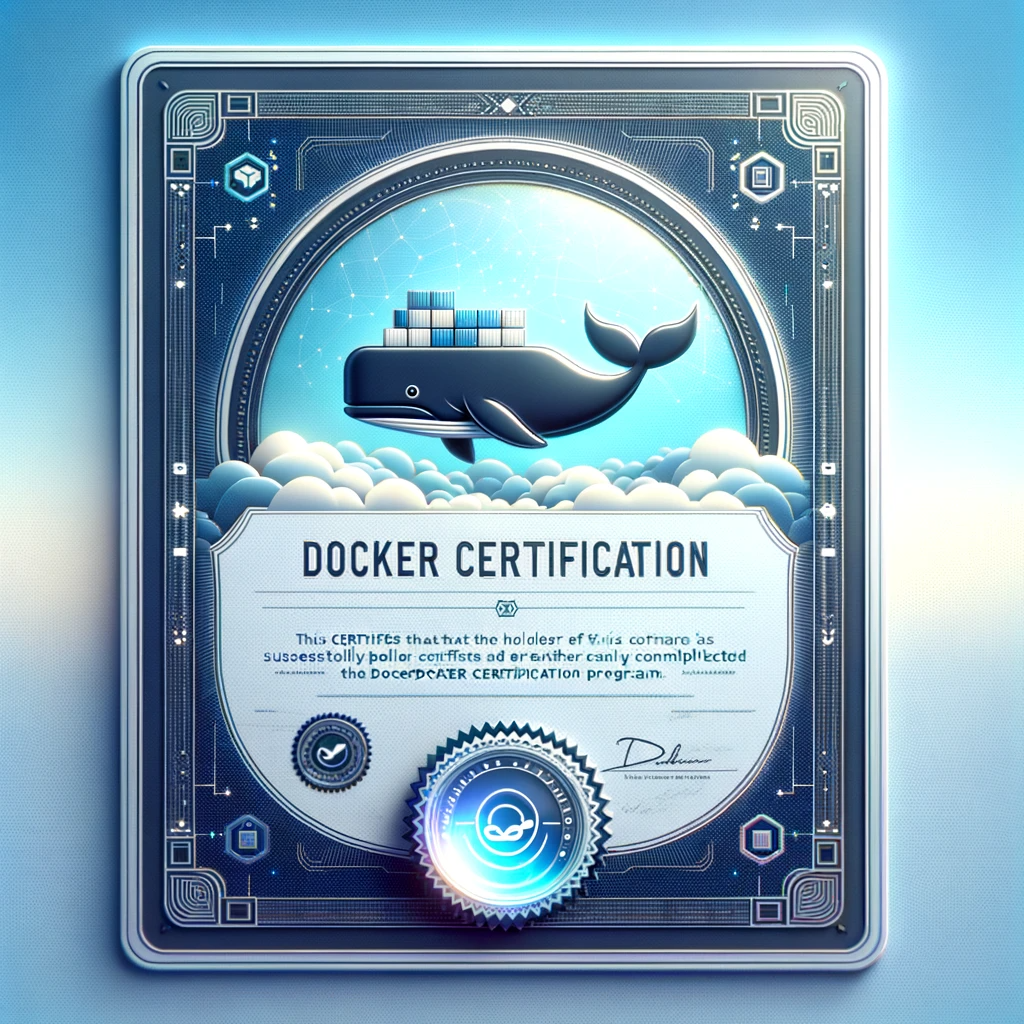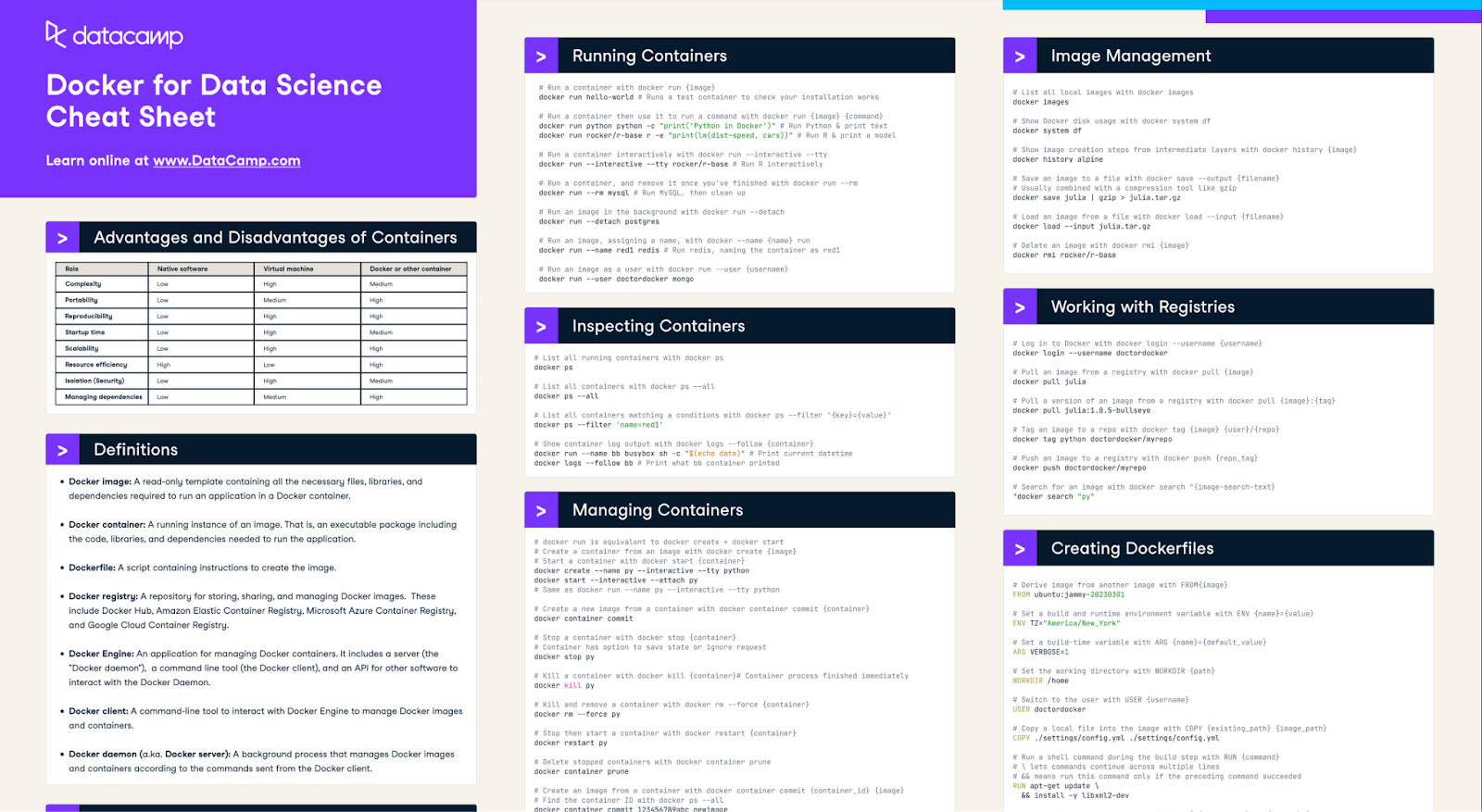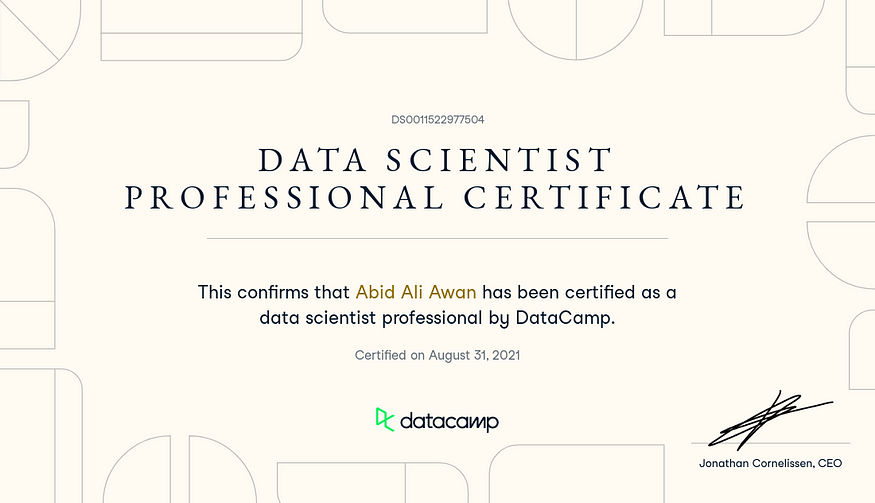course
The Complete Docker Certification (DCA) Guide for 2024
Unlock your potential in Docker and data science with our comprehensive guide. Explore Docker certifications, learning paths, and practical tips.
Updated Feb 2024 · 8 min read
Who should pursue Docker Certification?
How can I prepare for Docker Certification?
What topics are covered in the Docker Certified Associate (DCA) exam?
How long is Docker Certification valid?
What other certifications are available?
Learn Docker Today!
4 hours
14.9K
See More
RelatedSee MoreSee More
blog
The 12 Best Azure Certifications For 2024: Empower Your Data Science Career
Discover the comprehensive 2024 guide on Azure Certification for data practitioners. Delve into the essentials of Azure certification levels, preparation strategies with DataCamp, and their impact on your data science career.
Matt Crabtree
12 min
blog
A Guide to Google Cloud Certification in 2024
This guide provides a robust pathway for professionals to validate their expertise in cloud technology, enhance career prospects, and gain industry credibility. It will help beginners and intermediate learners understand the certification paths, their benefits, and the steps to achieving these valuable credentials.
Kurtis Pykes
9 min
blog
The GitHub Certification Guide for Data Professionals
Start the process of getting a GitHub certification, which will elevate your data career by giving you the tools and recognition needed to excel in any field.
Adejumo Ridwan Suleiman
15 min
blog
A Comprehensive Guide to SQL Certification on DataCamp
Explore SQL certification with DataCamp's courses & tutorials. Gain practical skills & theoretical knowledge to excel in data analytics and advance your career.
Matt Crabtree
8 min
cheat sheet
Docker for Data Science Cheat Sheet
In this cheat sheet, learn how to apply Docker in your Data Science projects
Richie Cotton
5 min
tutorial
Docker for Data Science: An Introduction
In this Docker tutorial, discover the setup, common Docker commands, dockerizing machine learning applications, and industry-wide best practices.
Arunn Thevapalan
15 min



